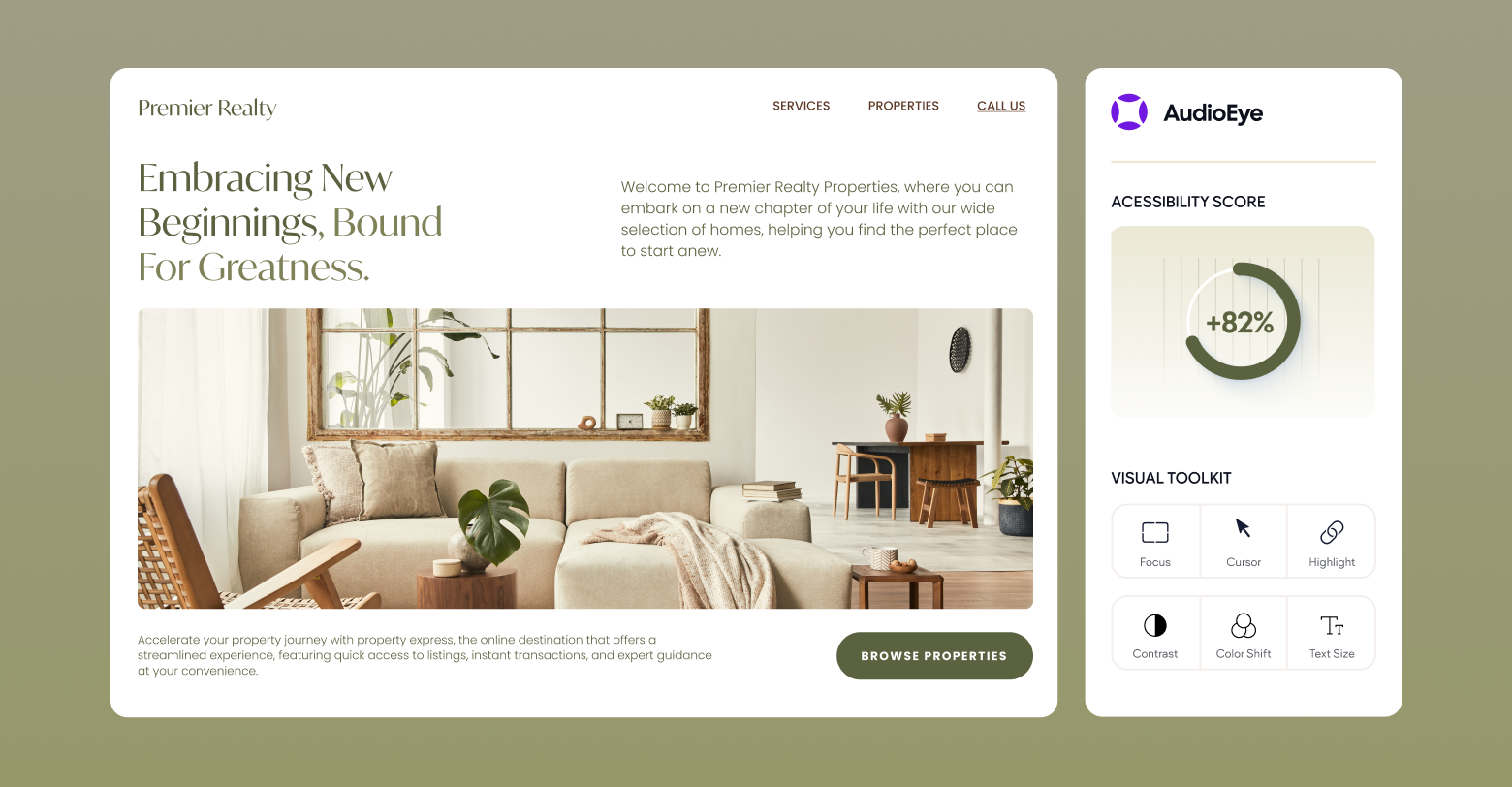No business wants to turn away one potential customer, much less 66 million potential customers.
Yet that’s exactly what can happen when businesses fail to deliver accessible digital experiences to the 1 in 4 U.S. adults with a disability.
From poor color contrast to missing image alternative text, accessibility barriers can make it hard for people with disabilities to use websites. Unfortunately, not every business is equipped to address accessibility barriers on its website — or even aware that these barriers exist.
That’s where
digital agencies can provide expert guidance and tools to help clients deliver accessible, compliant digital experiences to every potential customer.
In this post, we break down some of the latest accessibility laws and updates that impact digital agencies — and explain why agencies should be prepping clients on the benefits of digital accessibility.
What Are the Latest Digital Accessibility Requirements?
In recent years, laws like the
Americans with Disabilities Act (ADA) have established clearer requirements for digital accessibility — and regulatory bodies like the U.S. Department of Justice (DOJ) have followed suit.
Here’s a quick summary of some recent legislative updates and how they affect both public and private sector organizations, including digital agencies:
1. The DOJ Publishes New Guidance on Web Accessibility
One of the challenges of the ADA is it was signed into law in 1990, long before the internet became a staple of daily life. For that reason, the law doesn’t explicitly mention web accessibility, which can create ambiguity for businesses trying to understand their accessibility obligations.
In 2022, the DOJ published new guidance to help businesses ensure their websites were accessible to people with disabilities — and compliant with the ADA.
Notably, the statement clarified the DOJ’s position that the ADA applies to both the physical and digital worlds, writing “... the Department has consistently taken the position that the ADA’s requirements apply to all the goods, services, privileges, or activities offered by public accommodations, including those offered on the web.”
Calling websites “places of public accommodation” is significant, as it directly links digital accessibility to Title III of the ADA.
2. The DOJ Establishes Clear Technical Standards for Public Sector Websites
On April 8, 2024, the DOJ
signed a final rule under Title II of the ADA requiring state and local governments to ensure their websites and mobile apps are accessible to people with disabilities.
According to the new rule:
- State and local government entities must follow the
Web Content Accessibility Guidelines (WCAG) 2.1, Level AA.
- State and local governments serving more than 50,000 people must be compliant two years from the rule’s publication date, while entities serving less than 50,000 people have an additional year.
Keep in mind that any vendor providing digital services to a state or local government entity — such as creating or managing a website or mobile app — must also adhere to this rule.
3. The U.S. Department of Health and Human Services Strengthens Protections Against Discrimination
On May 1, 2024, the U.S. Department of Health and Human Services (HHS), via its Office for Civil Rights (OCR), finalized a rule
strengthening protections against discrimination on the basis of disability.
Titled Discrimination on the Basis of Disability in Health and Human Service Programs or Activities, the rule bolsters protection for people with disabilities under
Section 504 of the Rehabilitation Act.
Under the new rule, organizations that receive federal financial assistance — such as hospitals, doctor’s offices, social services, and nursing homes — must follow the
Web Content Accessibility Guidelines (WCAG) 2.1, Level AA, for web content and mobile applications.
Similar to the rules around Title II discussed above, websites and mobile applications built or operated by a third party on behalf of a recipient must also adhere to this rule.
Making the Case for Digital Accessibility
When we talk to agencies about the importance of digital accessibility, one thing we stress is that all roads are pointing toward universal accessibility requirements.
Even if an agency doesn’t have customers in healthcare or local government (which currently have explicit digital accessibility requirements), their customers in other industries can still be sued under Title III of the ADA. In fact, many businesses first learn about digital accessibility when they receive a legal claim or lawsuit.
By preparing for digital accessibility today, you can pitch prospects and customers on the value of building websites that will be compliant today and into the future, instead of building something that could get them in trouble.
Want to learn how Duda helps digital agencies create and maintain accessible websites? Learn more about Duda's
partnership with AudioEye.








